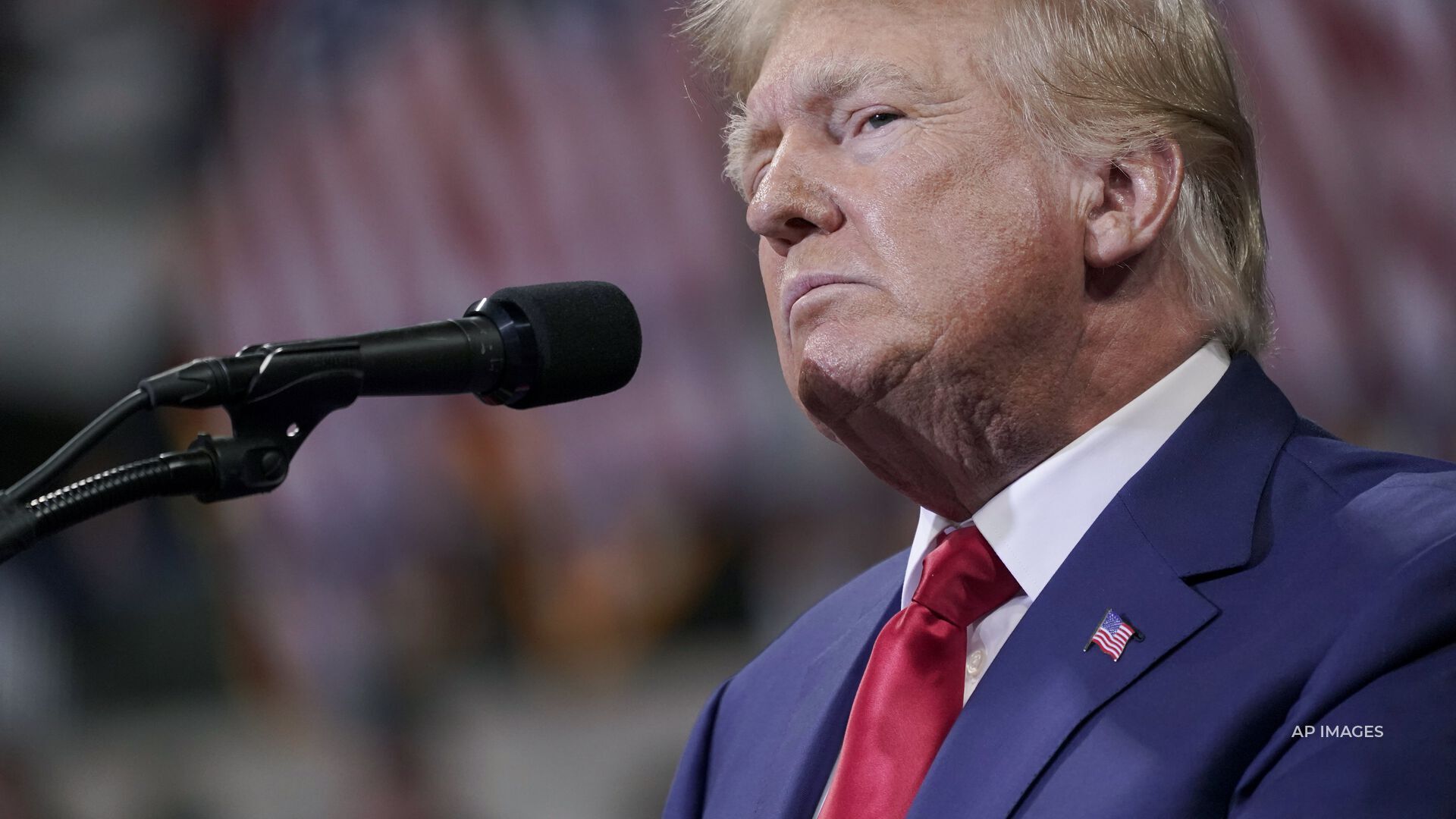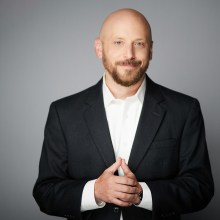
What are Trump’s legal options after indictment?
By Ryan Robertson (Anchor/Investigative Reporter), Jack Aylmer (Producer ), Brent Jabbour (Producer), Dan Reardon (Editor)
New York prosecutors have moved to file criminal charges against former President Donald Trump, marking the first criminal indictment of a former U.S. president in history. The Manhattan District Attorney’s Office has spent the last few years investigating whether Trump violated campaign finance laws in connection to hush money paid to adult film star Stormy Daniels before the 2016 election.
Trump is expected to turn himself in voluntarily and will reportedly appear in court for the first time on Tuesday, April 4, according to CNN. A spokesperson for the Manhattan DA’s Office said prosecutors contacted the former president’s attorneys to coordinate a surrender for arraignment.
“This evening we contacted Mr. Trump’s attorney to coordinate his surrender to the Manhattan D.A.’s Office for arraignment on a Supreme Court indictment, which remains under seal. Guidance will be provided when the arraignment date is selected,” the spokesperson wrote in a statement.
The exact charges won’t be known until the indictment is unsealed, but it’s expected at least one charge will be falsification of business records – which carries a sentence of up to four years in state prison if convicted.
For more on how Trump may choose to fight these charges, Straight Arrow News Investigative Reporter Ryan Robertson interviewed Jerry Goldfeder, a New York-based election and campaign finance lawyer.
Question: “Right off the bat here, when you first heard the news come down that a former president had been indicted, what were some of your initial thoughts and what sort of challenges does a case like this present for both prosecutors and the defense?”
Goldfeder: “Well, we expected this to happen. But, nevertheless because it is unique, it’s a little sad to have a president or a former president criminally indicted. Now, we don’t know what the indictment says at this this point, so we don’t know exactly what he’s charged with. But, given the fact that [Manhattan] District Attorney [Alvin] Bragg is a very smart, diligent attorney, I’m certain that the office has looked very carefully to make certain that the charges are valid, and that they stand an excellent chance of proving beyond a reasonable doubt that the former president has committed the crimes that they will be charging.”
Question: “So based on Trump’s previous legal dealings, it’s likely to assume he’s going to try to delay these proceedings in some way. Do you have any insight on some levers that his legal team might try to pull to delay this process in any way? Can they reach out to Congress and ask for a helping hand, what do you think?
Goldfeder: “No, they can’t reach out to Congress. Congress has no jurisdiction, in fact, the Republican leadership in Congress at this point is trying to with the Manhattan district attorney’s prosecution, but that will not be successful. Trump, just like any other defendant, might very well look at the prospect of moving to dismiss the indictment on the grounds that the evidence given to the grand jury is not sufficient to warrant this indictment. That’s par for the course, that’s within their rights as defendant to do that. They may even move to change venue, arguing that a Manhattan jury can’t be fair because the overwhelming vote in Manhattan was against Trump. I don’t know that they’ll succeed in either one of those circumstances, but it remains to be seen.”
“This matter has been assigned to a no-nonsense judge, and I imagine that this judge will try to move matters along expeditiously and will follow the law to a T. So, the defense has all sorts of procedural opportunities to try to delay the matter, even to dismiss the matter and I can’t predict wether they will succeed, simply because we don’t know what the charges are yet.”
Question: “I want to follow up on something you mentioned there about a change of venue. We know that Manhattan is Biden country, the president received 85% of the vote there in 2020, do you think it’s a fair legal argument to argue for a change of venue for the former president?”
Goldfeder: “Well I think it’s a non-frivolous argument, but I think that probably won’t succeed. New York is a blue state, there are pockets within the state that have voted Republican, so there could be a county where the vote was 50-50, if you will. But, the defense, as well as the prosecution, will have an opportunity to interview every prospective juror to ascertain wether or not they will be fair and objective. The defense will have that full opportunity, just as the prosecution will. And so, I think that at the end of the day, whether it’s in Manhattan or wherever it might land, I think we will wind up with twelve jurors who are objective and fair, will listen to the evidence, apply the law and make their decision.”
Question: “Some people might have been surprised that the case has gotten this far because of New York’s statute of limitations. It’s five years on most felonies, but it’s obviously been more than five years since the alleged crimes took place. Can you explain to us why this case doesn’t exactly fit the statute of limitations and why it’s not D.O.A based on that five-year limit?”
Goldfeder: “Well, it’s actually pretty simple. [Trump]’s been out of the state and that tolls the statue of limitation, meaning it extends the time by which a prosecutor can bring a case. And in addition to that, because of COVID, there was an executive order that also tolled the statute of limitations. So, believe me the district attorney has looked at this issue, and if they thought that the statute of limitations has run and they couldn’t bring the case, they wouldn’t. They believe that they are well within the time period and therefore they are proceeding.”
Question: “A lot of the evidence in this case seems to center around Michael Cohen. He was the one who made the alleged hush money payments on the part of the former president. So, since Cohen was a lawyer, can the Trump legal team make an argument or make the case that Mr. Trump believed Michael Cohen was carrying out these payments in a legal manner?”
Goldfeder: “Well, they can make that argument. They have to submit evidence to demonstrate that, and how would they do that? They could question Cohen on the witness stand, they could even put Donald Trump on the witness stand himself to try to refute what Cohen says. But, it’s not just Cohen. There’s other evidence and that will come out. We’ve seen some of that evidence before in the Cohen case, but I think we will see much more of it. It’s not a question of lawyers making arguments, it’s a question of evidence in the courtroom and what the jury believes.”
“They will try to impeach Cohen, whether they succeed or not remains to be seen. They will try to undermine the various documentary evidence that will be presented by the prosecution, and it falls to the defense to try to muck up the works so that the prosecution can’t prove beyond a reasonable doubt to the jury that these crimes have been committed and that he should be convicted. So, all in all, we’ll have to see what happens in court in terms of the evidence, the testimony and the documents, and what the jury believes.”
Unbiased news.
Directly to
your inbox.
Free!
MOST POPULAR
-
 AP Images
AP Images
N. Korea hackers steal military secrets, hit Air Force bases, NASA, US says
Watch 1:54
8 hrs ago
-
 Getty Images
Getty Images
A convicted child rapist is competing in Paris Games, many want to know why
Watch 1:55
11 hrs ago
-
 Reuters
Reuters
Attacks disrupt trains ahead of Olympics opening ceremony
Watch 9:44
14 hrs ago
-
 Getty Images
Getty Images
Philly workers furious over mayor’s order that they return to their offices
Watch 2:23
Yesterday


